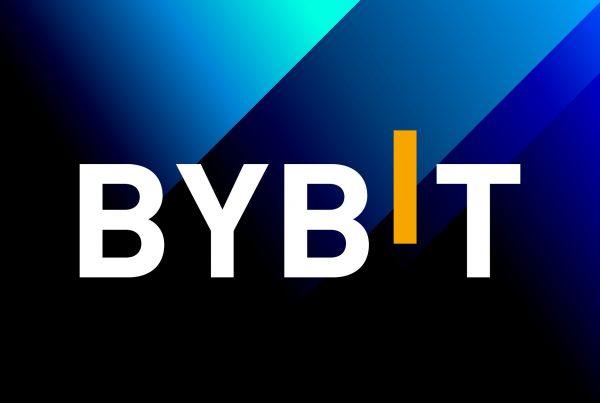
The cryptocurrency sector has continued to evolve at an unfathomable rate throughout the last couple of years, as is evident from the fact that the total market capitalization of this relatively nascent industry has grown from a little under $200 billion to around $2 trillion between 2020 and 2022 alone.
To put things into perspective, the valuation of Bitcoin in itself is touted to be more than that of a number of major mainstream players including Meta (the parent firm behind social media platforms such as Facebook and Instagram), Berkshire Hathaway, Visa, JP Morgan Chase, Walmart, Mastercard, amongst several others.
Not only that, several studies released over the last year or so project this market to continue growing at a steady rate, with one research paper suggesting that the digital asset sector will scale up to a value cap of around $4.94 billion by 2030, expanding at a compound annual growth rate (CAGR) of 12.8% between 2021 to 2030.
The rise of oracles
It is no secret that in recent years, the decentralized finance (DeFi) market has flourished and come into its own, providing millions of individuals all over the globe with a tangible alternative to the centralized legacy banking system that is currently in place globally. In fact, with approximately $200 billion worth of assets locked within this space, this valuation easily rivals the gross domestic product (GDP) of many nation-states.
A vast majority of DeFi’s rise can be attributed to the growth of blockchain technology, especially its use of smart contracts, which in their most basic form can be viewed as self-executing agreements that are totally independent of any human, third party intervention. In addition to smart contracts, the infrastructure of the DeFi market is also driven by another key component: oracles.
From lending markets to liquidity pools to derivatives protocols, oracles have made their presence felt across the burgeoning DeFi landscape. Since most apps operating within this space are heavily reliant on middleware entities that are able to connect their smart contracts to resources existing outside of their native blockchains, oracles have continued to grow in popularity with each passing year.
Without the presence of oracles, most blockchains would be quite limited in their functionality, largely because they enable enclosed networks to make use of reliable external information as well as interact with legacy systems, allowing smart contract ecosystems to interact with a wide array of events related to the physical world in real-time.
The security risks associated with oracles today
Even though blockchain oracles have evolved greatly since their inception, cases of hacking-style events related to these offerings have continued to rear their ugly head, especially over the last couple of years.
It is worth mentioning that through 2021 alone, more than $1.3 billion was looted by hackers via the exploitation of various oracle and bridge-based loopholes. As a result of this growing problem, a chorus of voices operating within the global crypto domain has continued to push for a more decentralized approach to governing and securing oracle systems.
In this regard, QED is one of the blockchain-based, decentralized oracles that offers an extremely high degree of network security thanks to its future-ready infrastructure. While existing well-known oracle systems claim to offer “true decentralization” such is not the case since they require the intervention of trusted third parties for the execution of their native data relay processes. As a result, they pose a massive threat to the safety and privacy of all those involved.
QED is designed to be completely transparent and decentralized in its working, not requiring the use of any intermediaries through the entirety of its execution phase — which deals with the delivery of data and post-execution claims. As a result, the platform is able to maximize data integrity as well as platform security.
Other key aspects worth considering
On Thu. March 12, 2020 — a day rightly dubbed as Black Thursday — the price of Bitcoin dipped by a whopping 50% within a matter of hours, falling as low as $4,600, albeit briefly. During the pervading madness, prominent oracle networks discontinued delivering data due to issues associated with their core security infrastructure, thereby failing to relay vital on-chain info to their associated platforms.
However, QED’s alpha product, referred to as DelphiOracle, remained totally unaffected by the events of the day, allowing for high-quality crypto price data to be relayed back and forth in real-time despite the many price swings. In fact, it is worth pointing out that DelphiOracle has never been hacked to date even though it has delivered well over 25 million data points to various blockchains since its launch.
From an efficiency standpoint, QED is capable of providing a refresh rate of 0.5 seconds which is much better than the average refresh rate. The metric is even higher than what is being offered by novel oracle protocols such as SupraOracles — a project that is capable of achieving a finality rate of around 3-5 seconds.
Therefore, moving forward, a more concerted push must be made to decentralize oracles so that the crypto market as a whole is not maligned by more cases of hacks and frauds related to these otherwise useful resources.
It is worth mentioning that through 2021 alone, more than $1.3 billion was looted by hackers via the exploitation of various oracle and bridge-based loopholes. As a result of this growing problem, a chorus of voices operating within the global crypto domain has continued to push for a more decentralized approach to governing and securing oracle systems.



